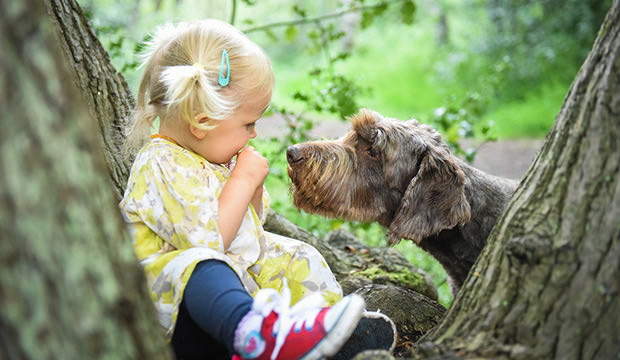
Although pooches are usually friendly, loveable, and goofy human companions, our canine friends can sometimes be inadvertently dangerous, especially to the kids.
If a child gets attacked by a dog, the trauma involved can be rather serious and long lasting. In this short guide, we will try and help you and your children learn how to approach and stay safe around dogs.
Even the most calm and peaceful canine pets can bite, and according to lovethatpet.com: “children under the age of 10 are at higher risk. Children under 4 years should never be left alone even with a family pet.”
Reading Dog’s Body Language
We forget that this is the very first thing we need to pay attention to – canine body language.
Even though reading their body language comes easily to us humans, this is a learned skill which means children need a nudge in the right direction and our help so they will be able to understand when a certain dog is not in a friendly mood.
For example:
- False Smile – When dogs show their teeth, some children may interpret this behavior as a smile. You must teach your child that this canine disposition and behavior might mean they are uncomfortable and might attack.
- Types Of A Wagging Tail – Typically, a wagging tail means the dog is happy and keen to interact, but there are instances when this is not the case. Teach your kid that an erect, upright, slow wag is a sign of an alert dog.
- Don’t Touch Me – If a dog yawns, licks his lips or looks away, he usually does not want to be touched.
Here’s a useful video that will show your children how dogs communicate.
